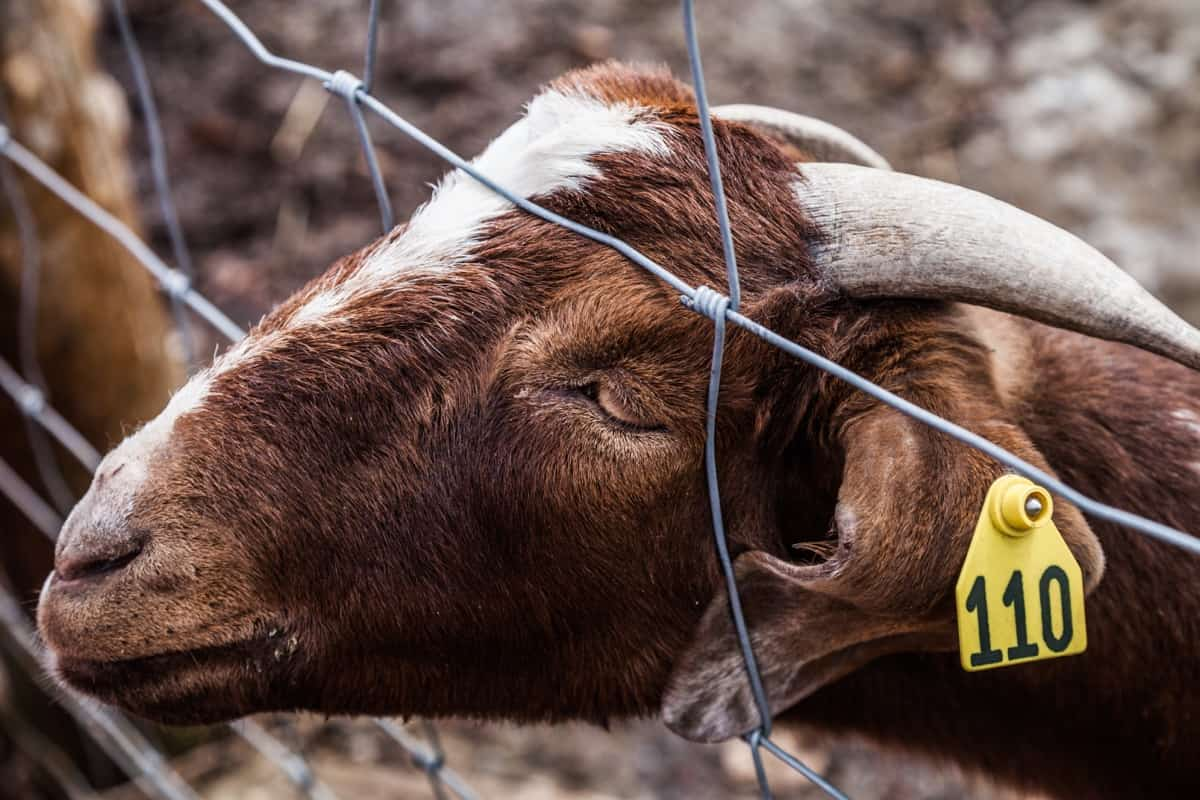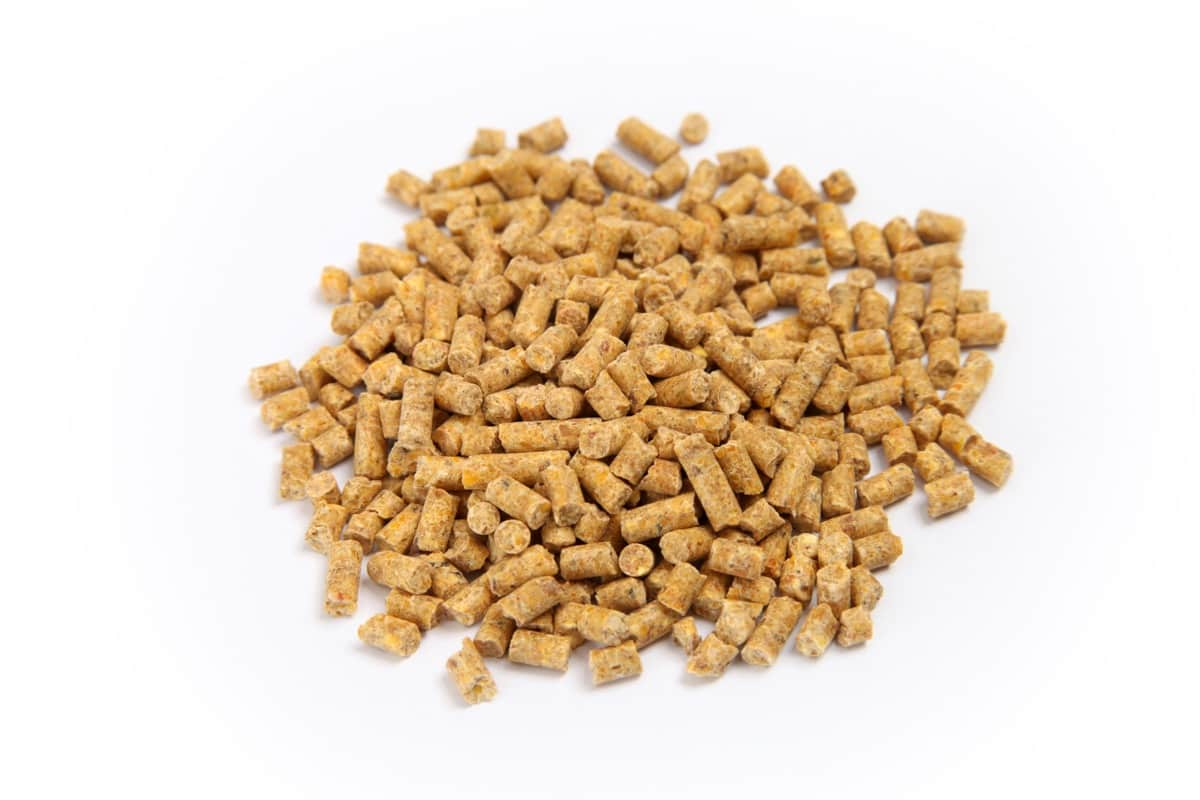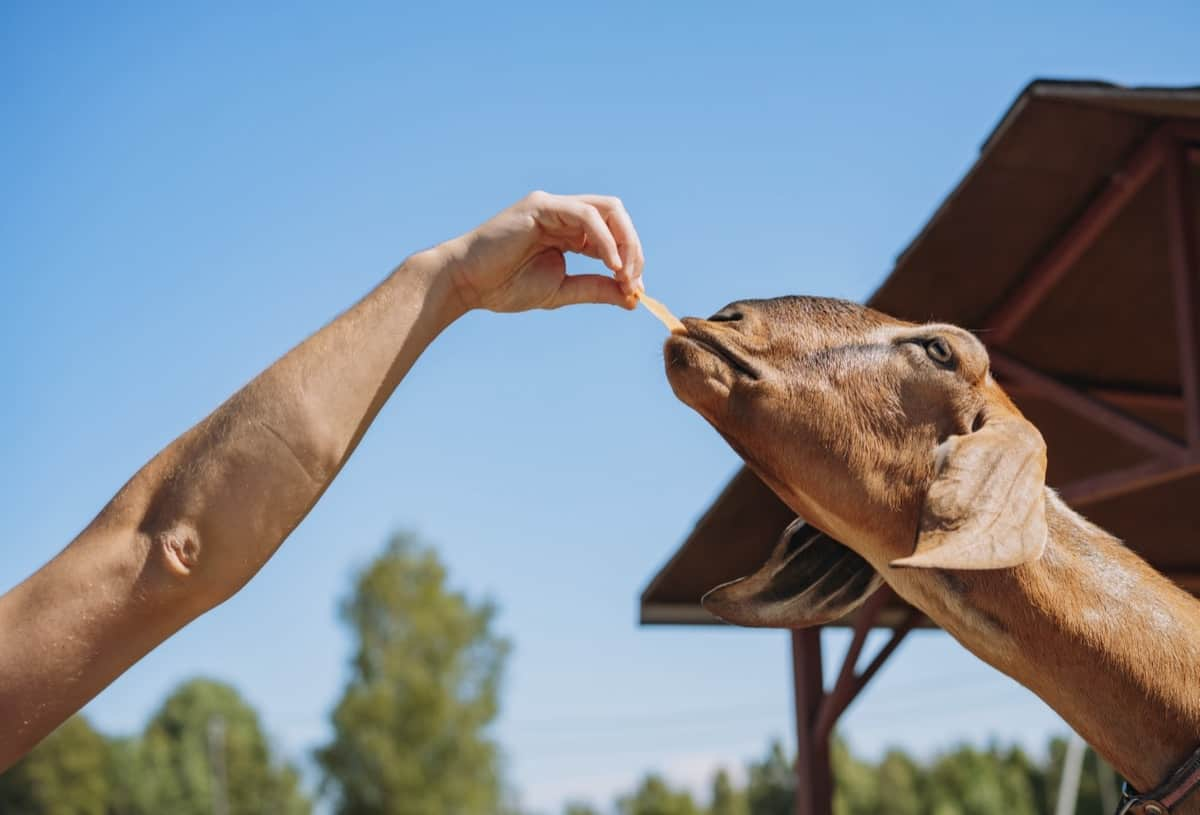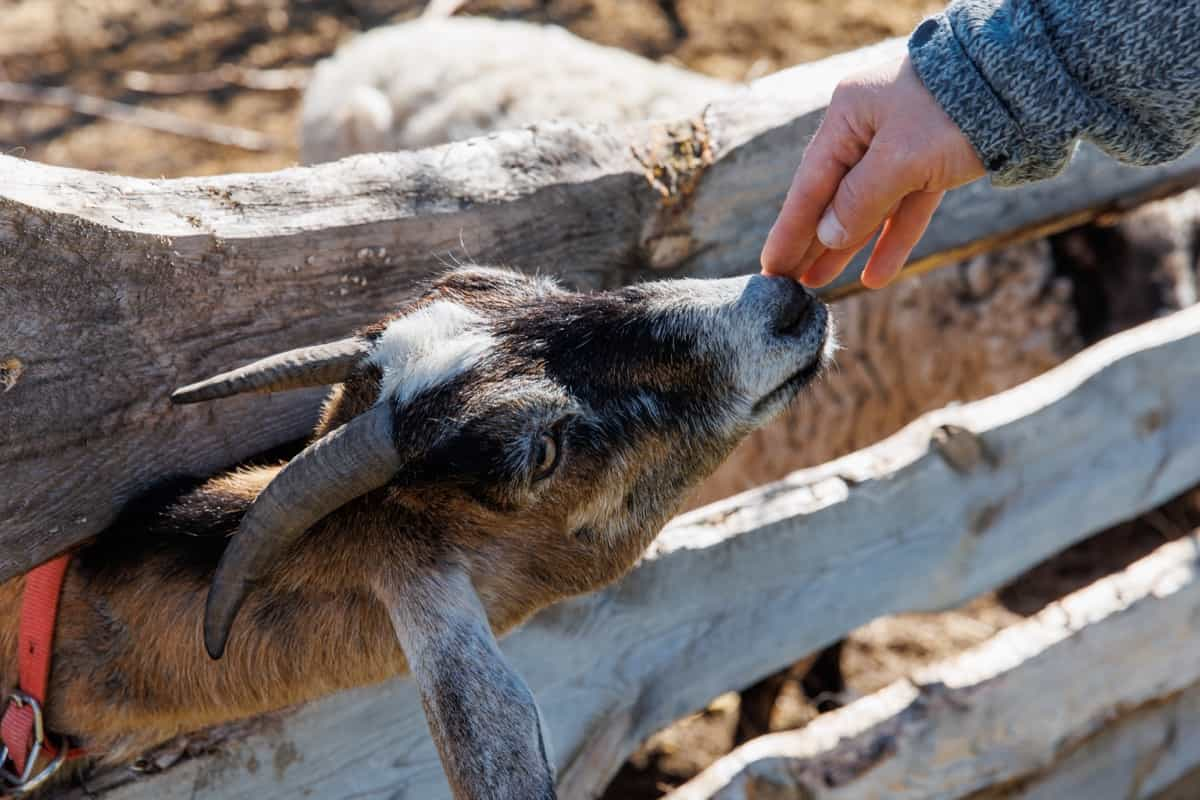Sirohi goat farming is a great way to get started in the livestock industry. They are a hardy and adaptable breed that can be raised for meat and milk production. Sirohi goats are a medium-sized breed of domestic goat from India. The Sirohi breed is known for its high milk production and ability to adapt to hot, arid climates. Raising this breed of goats can be profitable, but it requires knowledge and careful planning.

Key Rules to Start Sirohi Goat Farming
Benefits to Start Sirohi Goat Farming
- Sirohi goats are known for their high-quality milk. Sirohi goats produce some of the world’s most nutritious and flavorful milk. This makes them a valuable commodity for dairy farmers and processors alike.
- Another advantage to raising Sirohi goats is that they are relatively low-maintenance animals. They don’t require a lot of space or special equipment and are generally easy to care for. Additionally, Sirohi goats are bred to resist many common diseases, so your herd will likely stay healthy and productive for years.
- Finally, Sirohi goats can provide you with a steady source of income. If you sell your goats’ milk or meat, you can generate a good return on your investment. And if you choose to breed your stock, you can create even more value by selling offspring to other farmers or ranchers.
Different Types of Feeds for Sirohi Goats
Goats need a diet that is high in fiber and low in sugar. They have access to fresh water at all times. You should avoid giving them any food that is moldy or spoiled. You should provide them with plenty of hay or straw for bedding material. These animals are browsers and prefer to eat leaves and twigs over grass. They have a high nutritional requirement due to their rapid growth rate. They are susceptible to digestive problems if their diet is not properly balanced. A balanced diet includes hay, fresh vegetables, and a small pasture. Different types of feeds are;
- Forage: Sirohi goats should have access to plenty of fresh browse (leaves and twigs) from trees and shrubs. This can be supplemented with dried forage such as hay or silage.
- Grain: A small amount of grain may be given to Sirohi goats, but it should not make up more than 10% of their diet. The grain should be of good quality and free from mold or other contaminants.
- Mineral supplements: A mineral supplement should be provided free-choice to ensure the goats get all the necessary nutrients. Goats also need access to fresh water at all times.
In case you missed it: Key Rules to Start Barbari Goat Farming: Requirements and Business Plan

Requirements to Start a Successful Sirohi Goat Farming
- The farmer must have a sufficient amount of land available for grazing.
- The goats will also need access to clean water and shelter from the elements.
- Next, the farmer must purchase a breeding stock of Sirohi goats. These goats should be healthy and free from any genetic defects. Once the breeding stock is acquired, the farmer must raise them according to best practices to produce healthy offspring.
- Finally, the farmer must market their goats to sell them at a profit. This can be done online or by participating in local livestock shows and markets.
Key Points to Strat Sirohi Goat Farming
- It is important to choose a healthy breeding stock. Sirohi goats are known for their good health, but like any animal, they can be susceptible to disease if not properly cared for. Be sure to purchase your animals from a reputable source and have them checked by a veterinarian before bringing them home.
- Provide your goats with plenty of space. Sirohis are active creatures and need room to roam. A minimum of two acres per hundred goats is recommended, but more space is always better. Fencing is also important, as Sirohis are good jumpers and climbers.
- Feed your goats a high-quality diet. Sirohis are browsers and prefer vegetation over grain. However, they still need some grain in their diet for proper nutrition. Be sure to provide plenty of hay, fresh pasture, leafy greens, and a balanced grain ration.
- Keep an eye on your herd’s health. Goats are prone to parasitic infections, so regular deworming is essential. Additionally, vaccinations should be up to date to help prevent common diseases such as pneumonia and enterotoxemia.
In case you missed it: Key Rules to Start Boer Goat Farming: Requirements and Basics

Tips to Purchase Goats for Successful Business
- If you’re considering starting a goat farming business, one of the most important decisions you’ll make is what kind of goats to purchase. There are many different types of goats, and not all are well-suited for commercial goat farming.
- The first thing you need to consider when purchasing goats is what type of products you want to produce. Goats can be used for milk, meat, wool, or as pack animals. Each type of goat has unique characteristics, so you must choose the right breed for your desired purpose.
- Once you’ve decided what type of products you want, you must consider which breeds are best suited for commercial production. Some breeds are better at producing milk, while others excel at producing meat. It would help if you also considered which goats are hardly enough to withstand the rigors of commercial production.
- Finally, it would help if you decided where you would purchase your goats from. Many reputable breeders out there can provide you with high-quality animals. However, it would help if you took the time to visit potential breeders and see their operations before making a purchase. This will help ensure you get healthy animals that thrive in your environment.
Housing Rules and Requirements for Sirohi Goat Farming
- If you’re considering starting a goat farm, there are some important things to remember regarding housing and fencing. Goats are relatively easy to contain, but they have specific needs regarding shelter and space.
- Goats need a dry, clean place to sleep. They can be housed inside or outside, but their shelters should be well-ventilated and protected from the elements if kept outside.
- Goats require plenty of space to roam and graze. In general, each goat needs at least 10 square feet of pasture.
- Goats need a strong fence to keep them contained. Goats are curious creatures and will try to escape if given a chance. A good goat fence should be 5 feet high and made of sturdy material like wire mesh or wood boards.
In case you missed it: Cheap Farm Fence Ideas: DIY, Inexpensive, Low-cost, and Budget Tips

Feed Management Tips for Sirohi Goat Farming
- The first step in successful Sirohi goat farming is to ensure that you have a healthy and robust flock. The key indicator of a healthy flock is the feed conversion ratio (FCR). The FCR measures how efficiently your goats convert feed into body mass. A high FCR means that your goats are growing quickly and efficiently using the feed you provide.
- Many types of goat feeds are available on the market, so choosing one formulated for Sirohi goats is important. You can talk to your local veterinarian or livestock extension agent for recommendations on which feed is best for your area and climate.
- Provide adequate access to fresh, clean water at all times. Goats need to drink around 2-3% of their body weight in water daily, so it’s important to ensure constant access to fresh water sources. If you’re using automatic waterers, check them regularly to ensure they work properly and the water isn’t stale or dirty.
- Feed your goats twice daily, offering them as much as they will eat in one sitting but no more than 3% of their body weight daily. It’s important not to overfeed your goats, which can lead to health problems.
- Goats are generally considered herbivores, but they are omnivores. This means they can digest and benefit from plant and animal matter. When choosing what to feed your goats, you should consider plant- and animal-based options.
- Some good plant-based options for feeding your goats include hay, pasture, legumes, grains, vegetables, fruit, and tree leaves. Goats particularly enjoy eating alfalfa hay, which is high in protein and nutrients. It is also a good idea to offer them a variety of different plants so that they can get all the nutrients they need.
How to Start Sirohi Goat Farming?
Sirohi goats are a popular breed of dairy goat native to India. They are known for their high milk production and excellent milk quality. Sirohi goats are also relatively easy to care for, making them a good choice for those interested in starting a goat farm. The first step is to find a good location for your farm. Sirohi goats do best in warm climates, so choosing a place with plenty of sunshine and good drainage is important. You’ll also need plenty of pasturelands for the goats to graze on.
Once you’ve found the perfect place for your farm, you must set up some basic infrastructure. This includes fencing, shelters, and feeders. Next, you’ll need to purchase some Sirohi goats. It’s best to start with just a few goats and gradually increase your herd as your farm grows. When choosing goats, be sure to pick healthy animals from reputable breeders. Finally, you’ll need to provide proper care for your goats. This includes feeding them a balanced diet, providing clean water and shelter, and maintaining good hygiene.
In case you missed it: Key Rules to Improve Feed Conversion Ratio (FCR) in Sheep: For Profitable Sheep Farming

Health Management Tips for Sirohi Goat Farming
- You need to provide proper care for your goats. This includes feeding them quality hay and grain, providing fresh water at all times, and giving them plenty of space to roam and exercise.
- It would help if you also kept their living quarters clean and debris-free. In addition, you need to monitor your goats for signs of illness or injury. If you see any red flags, contact a veterinarian immediately.
- Sirohi goats need plenty of fresh, clean water at all times. Water is essential for their overall health and well-being.
- Provide your goats with a healthy diet with hay, grass, and fresh vegetables. Goats also like to eat twigs and branches, so they have plenty of browse.
- Keep your goats’ living area clean and free from debris. This will help prevent the spread of disease and parasites.
- Regularly check your goats for signs of illness or injury, and seek veterinary care if necessary.
- Practice good herd management practices for successful farming. This includes regularly deworming your goats and providing them with annual vaccinations. Good herd management practices will help keep your goats healthy and disease-free.
Conditions to Start Sirohi Goat Farming
- Choose a suitable location for your farm. Sirohi goats do best in dry, warm climates with access to plenty of fresh water.
- Clear the land and fencing off the area you will use for your farm.
- Build sturdy housing for your goats. They will need somewhere to shelter from the hot sun and somewhere to sleep at night.
- Buy or adopt some Sirohi goats. Ensure they are healthy and vaccinated against common diseases such as pneumonia and diarrhea.
- Feed your goats a balanced diet of hay, pasture, grains, and vitamins/minerals. Goats also like to eat browse (leaves, twigs, etc.), so allow them access to an area where they can graze on plants. Avoid feeding them too much milk, as it can cause digestive problems.
- Keep your goats clean and free from parasites. Regularly check their hooves and trim them if necessary to prevent painful overgrowth.
- Collect the milk from your does (female goats) daily to make cheese, butter, yogurt, or other products.
In case you missed it: Key Rules to Improve Feed Conversion Ratio (FCR) in Goats: For More Profits in Goat Farming

Marketing Your Goat Farm
There are different ways you can market your Sirohi goat farm. One option is to sell directly to consumers through farmer’s markets or online stores. You can also sell to local restaurants or specialty food stores. Another avenue is to wholesale your products to larger distributors.
Conclusion
Goat farming is a great way to get started in the agricultural industry. Sirohi goats are known for their high milk production, so they are a great choice if you want to start a small-scale dairy operation. These hardy, disease-resistant goats are becoming increasingly popular among farmers due to their adaptability to climates and resistance to common diseases.
- How to Make Houseplants Bushy: Effective Tips and Ideas
- Innovative Strategies for Boosting Coconut Pollination and Yield
- Pollination Strategies for Maximum Pumpkin Yield
- The Complete Guide to Chicken Fattening: Strategies for Maximum Growth
- Natural Solutions for Tulip Problems: 100% Effective Remedies for Leaf and Bulb-Related Issues
- Revolutionizing Citrus Preservation: Towards a Healthier, Greener Future
- Natural Solutions for Peony Leaf and Flower Problems: 100% Effective Remedies
- Maximizing Profits with Avocado Contract Farming in India: A Comprehensive Guide
- Natural Solutions for Hydrangea Problems: 100% Effective Remedies for Leaf and Flowers
- The Ultimate Guide to Choosing the Perfect Foliage Friend: Bringing Life Indoors
- From Sunlight to Sustainability: 15 Ways to Use Solar Technology in Agriculture
- The Ultimate Guide to Dong Tao Chicken: Exploring from History to Raising
- The Eco-Friendly Makeover: How to Convert Your Unused Swimming Pool into a Fish Pond
- Mastering the Art of Delaware Chicken Farming: Essentials for Healthy Backyard Flocks
- 20 Best Homemade Fertilizers for Money Plant: DIY Recipes and Application Methods
- How to Craft a Comprehensive Free-Range Chicken Farming Business Plan
- Brighten Your Flock: Raising Easter Egger Chickens for Beauty and Bounty
- How to Optimize Your Poultry Egg Farm Business Plan with These Strategies
- Subsidy for Spirulina Cultivation: How Indian Government Schemes Encouraging Spirulina Farmers
- Ultimate Guide to Raising Dominique Chickens: Breeding, Feeding, Egg-Production, and Care
- Mastering the Art of Raising Jersey Giant Chickens: Care, Feeding, and More
- Ultimate Guide to Raising Legbar Chickens: Breeding, Farming Practices, Diet, Egg-Production
- How to Raise Welsummer Chickens: A Comprehensive Guide for Beginners
- How to Protect Indoor Plants in Winter: A Comprehensive Guide
- Ultimate Guide to Grow Bag Gardening: Tips, Tricks, and Planting Ideas for Urban Gardeners
- Guide to Lotus Cultivation: How to Propagate, Plant, Grow, Care, Cost, and Profit
- Agriculture Drone Subsidy Scheme: Government Kisan Subsidy, License, and How to Apply Online
- Ultimate Guide to Raising Araucana Chickens: Breed Profile, Farming Economics, Diet, and Care
- Bringing Hydroponics to Classroom: Importance, Benefits of Learning for School Students
- Ultimate Guide to Raising Polish Chickens: Breed Profile, Farming Economics, Diet, and Care
- Ultimate Guide to Raising Australorp Chickens: Profile, Farming Economics, Egg Production, Diet, and Care
- Silkie Chicken Farming: Raising Practices, Varieties, Egg Production, Diet, and Care
- Sussex Chicken Farming: Raising Practices, Varieties, Egg Production, Diet and Care
- Homemade Feed Formulations for Livestock: Discover Cost-effective Starter to Finisher Feed Recipes
- 20 Best Pig Weight Gain Supplements: Top Swine Weight Gain Formulas
- Ultimate Guide to Elderberry Farming: Propagation, Planting, Yield, Cost, and Profit